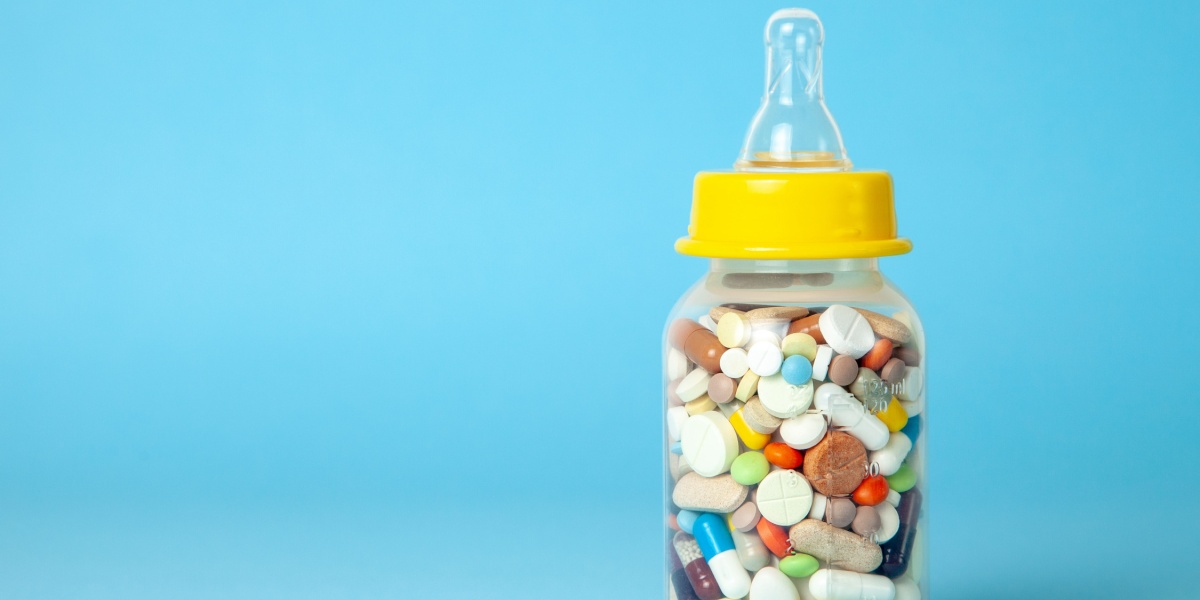Taking illegal or recreational substances during pregnancy, including alcohol, cocaine, methamphetamine, and opioids can significantly impact the well-being of both mothers and their unborn children.

The Risks of Substance Abuse During Pregnancy
Using substances like alcohol or narcotics during pregnancy can cause critical health problems that severely affect both mother and baby. The effects of substance abuse during pregnancy are often related to cognitive and behavioral development issues, though physical health can also be greatly impacted. Some common conditions caused by substance abuse during pregnancy include:
- Fetal Alcohol Syndrome: This is a serious condition that results from the unborn child being exposed to alcohol during pregnancy. Fetal alcohol syndrome (FAS) is characterized by behavioral, cognitive, and physical impairments in the newborn. [1]
- Cognitive delays: Exposure to substances like cannabis, alcohol, and methamphetamine during pregnancy may lead to cognitive delays in children, affecting attention, memory, and problem-solving skills. [2]
- Preterm birth and low birth weight: Substance use during pregnancy may also be associated with a boosted risk of preterm birth and low birth weight. These conditions might lead to other health problems like infections and respiratory distress syndrome.[3]
- Emotional problems: Children exposed to drugs in utero may show a range of emotional problems such as reduced impulse control and increased irritability. For instance, some studies note that prenatal exposure to marijuana has been linked to social problems and attention deficits. [4]
- Other physical health issues: Beyond behavioral and cognitive side effects, drug exposure during pregnancy might lead to congenital anomalies (especially with methamphetamine abuse) where there's an increased risk of cardiovascular defects. [5]
What Do Drugs and Alcohol Do To Your Unborn Child?
Different substances can affect the fetus in a variety of ways ranging from physical birth defects to mental abnormalities.
The Effects of Alcohol Use During Pregnancy
Alcohol use during pregnancy may lead to Fetal Alcohol Syndrome Disorders (FASD). The adverse effects might cause difficulties in socialization, emotional control, and motor coordination.
Specific symptoms determine different diagnoses of Fetal Alcohol Symptom Disorders.
- Fetal Alcohol Syndrome (FAS): Fetal Alcohol Syndrome can be severe to both physical and mental development. Individuals with FAS have challenges with the central nervous system and growth, as well as talking, hearing, and seeing.
- Alcohol-Related Neurodevelopmental Disorder (ARND): Individuals with ARND may have issues with behavioral development and learning. Children with ARND may also have difficulties with focus, memory, and impulse control.
- Neurobehavioral Disorder Associated with Prenatal Alcohol Exposure (or ND-PAE): Children or youth with ND-PAE often have problems in memory, reasoning, behavior, and day-to-day living.
- Alcohol-Related Birth Defects (ARBD): Children born with ARBD may have issues with the kidneys, bones, heart, hearing, or a combination of these.
The Effects of Opioids During Pregnancy
Opioid use during pregnancy, particularly heroin, may cause neonatal abstinence syndrome. Symptoms of neonatal abstinence syndrome include high-pitched and excessive crying, gastrointestinal problems, and seizures. [8]
The Effects of Cocaine and Methamphetamine Use During Pregnancy
Expecting mothers who abuse stimulants such as cocaine or meth have a higher risk for maternal seizures and migraines, placental abruption, and premature membrane rupture. [7]
The Effects of Benzodiazepines During Pregnancy
A recent study shows that women who use benzodiazepines during pregnancy have a higher chance of giving birth to a newborn baby that requires ventilatory support. [9]
The Effects of MDMA During Pregnancy
The research on the effects of substances like molly and ecstasy (MDMA) while pregnant remains scarce. Some research suggests that exposure to MDMA during pregnancy might result in motor problems in the newborn. [10]
Pregnancy and Addiction: The Statistics
What do the latest statistics show about pregnancy and addiction?
- Approximately 5 percent of women use one (or more) addictive substances during pregnancy. [11]
- A 2020 study revealed that 2.8 percent of women used cannabis daily while pregnant. [12]
- The same study showed the most commonly used substance among expecting mothers between the ages of 15 and 44 was marijuana. [12]
- Around 10 percent of women reported alcohol use during pregnancy. [13]
- 2.8 percent of women expecting childbirth used cannabis daily during the past year (compared to 4.8 percent of non-pregnant women). [15]
- Cannabis use increases the risk of stillbirth by 2.3 times. [16]
- Passive tobacco exposure during pregnancy increases the risk of stillbirth by 2.1 times. [16]
- 74 percent of women who consumed cannabis before and continued using it throughout pregnancy were also cigarette smokers while pregnant. [17]
- In 2015, research revealed that pregnant women prescribed opioid painkillers had a higher chance of consuming tobacco, compared to individuals who did not take opioids.[18]
Getting Help for Addiction When Pregnant: Available Treatment Options
Addressing substance abuse while pregnant is vital for the health of the developing fetus and the soon-to-be mother. Fortunately, a few specialized treatment approaches might be useful during pregnancy.
Behavioral Therapies for Substance Abuse During Pregnancy
The goal of behavioral therapies is to modify substance-use behavior through counseling.
- Motivational interviewing (or MI): This approach focuses on enhancing motivation to change behavior. Motivational interviewing may be especially effective for expectant mothers who might not be sure about changing drug use behaviors. [19]
- Cognitive behavioral therapy (or CBT): Cognitive behavioral therapy may help patients recognize and alter thought patterns and behaviors that result in substance abuse. Cognitive behavioral therapy can also be tailored to tackle triggers and stressors linked with parenthood and pregnancy. [20]
Comprehensive Care Programs
Comprehensive care programs are created to address the different needs of pregnant women with a drug use disorder. These programs involve social support services, treatment of drug use, and medical care.
Prenatal care, for instance, is important for monitoring the fetus's and mother's health. Counseling and education about the consequences of alcohol, opioids, cannabis, and other drug use can help women understand the dangers of these substances, thus encouraging them to reduce or discontinue usage.
Nutritional support, on the other hand, promotes the fetus's health and addresses dietary deficiencies. Alcohol or other substances can interfere with nutrient absorption and malnutrition, especially of omega-3, zinc, iron, selenium, copper, and folic acid.
If you or a loved one are dealing with substance use during pregnancy, it's essential to get support and professional advice.
Reach out to your general practitioner, midwife, or drug treatment services. By contacting professional services, you will receive family and antenatal support.
If the mother stops substance abuse during the first trimester, the chances of delivering a healthy baby increase.


-blog-detail.jpg?v=1722513488)

